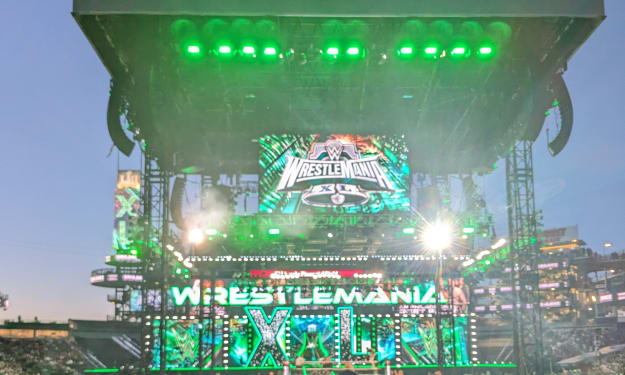Neo-Liberalism as Marketing in Comics
How capitalism and neo-liberalism united to ruin the american comic book industry

It’s a familiar sight. You enter the local comic book shop (if you even have a comic book shop) and see the shelves packed full of bland, stupid looking funko pop dolls and done to death recycled trite. Books that sell based on nothing more than name recognition and an endless series of gimmicks. What if Thor was a woman? What if Spiderman was black? What if ice man was gay? Forget telling a compelling story, simply changing the characters demographic data to the trending minority of the week should be more than enough to draw new readers. Right?
Well, yes, in a sense. The companies that supply most of the stock to comic book stores and have a monopoly on common public attention (Marvel and DC) are massive corporate entities driven only by profit. And right now, comics aren’t where the big money is at, movies and TV shows are. So why in a capitalist society would Marvel or DC put any more than the absolute minimum level of effort into their comics when that’s not the cash cow? Why even make comics anymore at all?
Comics used to be a niche subculture. Marvel used to be a struggling small business subject to the whims and demands of a small audience. If they wanted to remain in business they had to appeal to that specific audience. Now, who does Marvel appeal to? Disinterested parents looking for a movie to take their kids to. Comics was ultimately nothing more than a stepping stone to grander and more profitable ventures. What is the Marvel CEO going to do, make comics for the love of it? Hell no. It’s all about the money baby and the money just isn’t there anymore, not that it was ever there to the degree that it is in film.
Which brings us to neo-liberalism. Or just liberalism if you prefer.
Comics have (and this should be shocking to absolutely no-one) always been diverse. The X-men were an allegory for LGBT people written at a time when conservatives would have gone ape-shit if the messaging had been direct. (See the history and formation of The Comics Code Authority and it’s chilling effect on the industry in the 1950s) They portrayed characters of all races and backgrounds and were a lot less coy about their political messaging historically than they are today. And this is why it may be surprising to long-time comics book fans to see that diversity commodified as nothing more than a cheap gimmick.
Instead of taking a risk and creating a new original character (or even re-booting any of the plethora of existent diverse characters) they take a straight white male character and through some plot contrivance or a hard re-boot change them to something that will launch them into the news cycle. Outrage fishing, essentially. Their books sell enough copies to re-coup the minimal expense of producing them and serve their primary function of increasing the name recognition of the brand and their characters. This in turn results in higher turnouts at their movies. Which is the ultimate goal and their main reason for existing as a company. Like it or not, OG comic book fans are not and have never been the target market of Marvel or DC movies. So as much as comics-gate and gamer-gate types may complain about feminism or a protagonists tit size, it has no effect on the demographic with 80% of the consumer spending power in the economy, women and more specifically mothers. For every single man that stays home to boycott Captain Marvel a wine mom buys six tickets for her family and a few of her kids friends.
That’s the new target market. Teen or middle-aged nerds and geeks are out, disengaged moms are in.
Comics used to be sold to teenagers and young adults for essentially a handful of pocket change. They were printed on low-cost material and contained provacative and imaginative content. However, there’s only so much money to be made off teenage pocket change and in the age of digital media most of that content can be found for free or pirated online and kids know this. They grew up with iPhones glued to their hands, they can find your content for free faster than you can figure out how to format it for digital distribution.
In fact, comics are so unprofitable as a medium that stirring up drama and riding the news cycle is more of a cash cow than publishing compelling content. The nay-sayers and conservative hacks make their money playing up the outrage over so-called PC media and the megacorporations rake in the cash on shitty op-eds, self-victimizing opinion pieces by rich liberal whine moms and talk show hosts complaining about the complainers complaining about their intentionally bad content.
It would be one thing if the stories were consistently good and the comics-gate community was just triggered over the existence of brown people, but that’s not what’s happening.
Marvel and DC are actually using identity politics to appeal to a disengaged target market, stirr up controversy in their microscopic but very loud engaged audience and then prop up bad content that isn’t made with the intent of being read or content that is clearly made for children but not marketed as such.
The latter, making milktoast content for children, isn’t bad. But it does leave a big gap in the market for adult content and no distribution network in place for the people willing to fill the gap due to the monopolization and corporatization of the industry by people only interested in sanitizing it for the general market (something that any truly pro-diversity person should find repugnant.)
There is some crossover between comics-gate personalities and creators exploiting this gap in the market but for every genuine content creator there’s a youtube grifter fishing for outrage and feeding into the news cycle that props up the mainstream comics industry as a whole. Some YouTube toddlers actually are just performatively triggered by brown people or “femoids” but they’re a loud whiny minority easily identified by their complete lack of knowledge of the source material. Fake fans, in essence. And these fake fans are necessary in the cycle of neoliberalism because without their irrational screeching the whine moms wouldn’t have a legitimate target to clap back on. There’d just be the legitimate criticism which is not so easily dismissed and profited off of. So neither party has an motivation to get rid of the other because they both have to exist for the cycle to work.
Some independent creators have hybridized these two modes of production to great effect. Using outrage marketing to build a rabid fan base before delivering a product and then using said fan base to deflect all criticism as irrational screeching because of the minority of critics that inevitably rise up to get performatively triggered by it for money (building their own fan base.)
I’m not saying that it’s wrong for them to do so (you gotta do what you gotta do, any publicity is good publicity.) I’m just highlighting it for what it is. Neo-liberalism. Two parties engaging in a faux ideological battle with no end goal or way of quantifying victory so as to polarize their respective audiences into buying content for the sake of ideology, and not the content itself. At this stage, the content isn’t the main focus anymore, perpetuating the outrage cycle is and thus the quality of the product being marketed begins it’s decline.
Many big comics-gate creators would deny this, as would every mainstream Marvel or DC creator and that’s fine. They might not even be doing it consciously but there is no denying that neo-liberalism in comics, as in politics, is a destructive and highly profitable marketing strategy that neither party shows any interest in stopping. Which is why it’s so prevalent, especially among highly successful creators in the industry. It’s the reason they’re successful. Because again, the market for outrage is bigger than the market for comics.
So, in closing, if you are a disgruntled and frustrated reader and you have a limited budget like many of us do, don’t buy into the hype on either end of the neoliberal homogeny. Research independent creators that love and respect their craft and buy books for their substance and quality, not for the creators politics. The only way to end neo-liberalism and encourage quality content is to disengage from it and think independently.
About the Creator
Floran Bailey
Biologist by day, comic artist by night. Swamp dwelling anarchist all day every day.






Comments
There are no comments for this story
Be the first to respond and start the conversation.